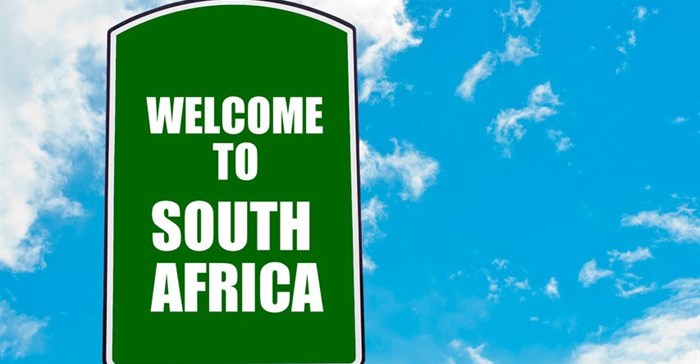
Top stories






More news


Marketing & Media
Ads are coming to AI. Does that really have to be such a bad thing?














Recent headlines have made it clear that the Department of Home Affairs (DHA) has its hands full tracking hundreds of thousands of illegal foreigners across the country. Between 2010 and 2015, 333,000 documented illegal foreigners (people with an expired visa or who no longer adhere to the conditions of their permit) were recorded on our shores. These numbers represent individuals who disappeared into the country after their visiting visas expired after 30 days.
However the total number is believed to be much higher because of thousands whose presence in the country has never been logged. Statistics South Africa had previously estimated there were between 500,000 and 1 million undocumented people in the country. Other researchers had put the figure at twice as much.
It’s clear that South African policy makers have a problem and it needs to be resolved fast. The issue is that the law is not consistently applied and neither are the procedures surrounding the foreigner’s illegality. For example, the Immigration Act says an illegal foreigner must depart, however, if the foreigner wishes to submit an application for a visa after the expiry of their last visa (thereby regularising their status), they may do so if:
1) The individual has not been arrested for the purposes of deportation
2) The individual is illegal for reasons beyond their control (which burden of proof, in my opinion, is unreasonably onerous)
3) The individual is immediately in a position to apply for a visa.
However, in practice, foreigners who approach the DHA in order to regularise their status are either turned away, arrested or spend months awaiting the outcome of the regularisation process. In my experience dealing with the Inspectorate Division however is that these officials believe they are following the correct process. Their intention is not to harm anyone but to uphold the law, which is incorrectly interpreted and which unfortunately has dire consequences for the foreigner.
The new regime has not changed procedures dramatically in relation to the arrest, deportation and detention of illegal foreigners. The drastic change is the regularisation process explained above. Previously, this process could be finalised within a day and after processing, the foreigner walks away with a 'slap on the hand'. Today, the long-winded process, which could take six months or longer to process, results in a criminal conviction.
Unfortunately, and perhaps unbeknown to the officials, the way in which the Department of Home Affairs deals with illegal foreigners and the regularisation process is unlawful and a new approach must be adopted.

The regularisation process takes months (and in some cases, nine months or longer) to process and in most cases, these applications are wrongfully refused. The implication is that the relevant person is illegal for a further nine months. This means that the individual is subject to arrest, detention and deportation, their bank accounts are frozen, they cannot work lawfully, the individual cannot have an active membership with any medical aid, if a child is born to an illegal foreigner the birth of the child cannot be registered and if the child leaves South Africa they will be declared undesirable and banned from returning. The list of implications is endless.
Looking back to 1991 up until 2014, South Africa maintained a flexible immigration policy. After being included into the country’s national security cluster – together with military, police and intelligent services – the DHA was compelled to enforce stricter control to its policy. 22 May 2014 saw the publishing of the regulations which brought into force the Immigration Amendment Act, which meant that individuals were given a single day’s notice before immigration policy changed. This new regime saw a shift from a flexible South African boarder to a super vigilant and closed border, sadly providing very few foreigners with lawful entry.
South Africa is clearly overwhelmed by large numbers of illegal immigrants crossing the country’s porous borders to seek better living standards. The selectivity regarding foreigners relocating to South Africa has taken a shift and now reflects a policy of deep suspicion for foreigners hoping to relocate to our shores. When one looks objectively at these collective changes, it is easy to see why they were implemented. Over the years South Africa’s population register and its immigration system have been badly corrupted by dishonest foreigner and Home Affairs officials conspiring with each other.
The current immigration policy looks to bring law and order back to South Africa’s immigration regime in order for the DHA to create a level of normality in the immigration policy while keeping an eye on the demands of both foreigners and South African business. This stability can only be reached once South Africa’s immigration systems has been restored.
The question then is what can be done in the short term? The answer to that question does not necessarily lie within the strict regime, but rather with the individuals employed by the DHA (and its foreign missions) responsible for enforcing the regime. Adequate training of the immigration regime would definitely be a step towards the right direction as this change alone would have a profound positive affect on foreigners and in turn the South African economy.